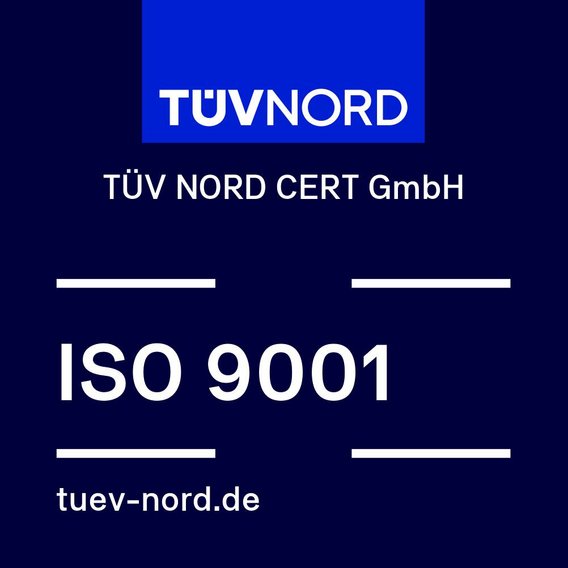
What is ISO 9001?
ISO 9001 is the international standard that defines the criteria for a quality management system (QMS). ISO 9001 focuses on performance, risk-based thinking and customer satisfaction. More than one million companies in over 170 countries have already achieved ISO 9001 certification. The standard provides a structured framework that helps organizations consistently meet customer and regulatory requirements.
Whether you are a small business or a multinational enterprise, ISO 9001 certification supports you in improving internal processes, increasing efficiency, and reducing operational risks. For many industries, ISO 9001 is a key requirement for supplier approval and public or private tenders. It strengthens your reputation, both locally and internationally.
As part of the TÜV NORD GROUP, we combine local presence with global expertise. Our auditors guide you through the certification process, from initial assessment to successful issuance of your ISO 9001 certificate. We provide personalized support and industry-specific insights to ensure that your QMS meets the highest standards and delivers real value to your business.